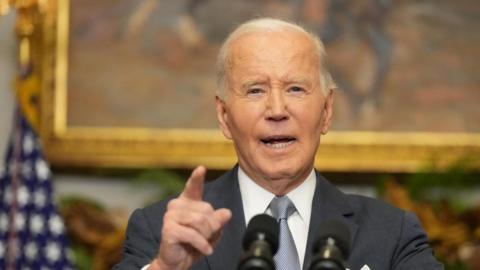The speed and magnitude of Bashar al-Assad's "historic" downfall has stunned the White House. But President Biden is also taking part of the credit.
In his statement, he portrayed the extraordinary shift in Syria's control as a result of US strategy which has fundamentally weakened the roles of Russia and Iran in the region, helping precipitate Assad's demise.
In reality, Washington never foresaw that its military support for Israel since the Hamas attacks last October and for Ukraine since Russia's full-scale invasion in 2022 would contribute to the collapse of half a century of Assad rule in Syria.
But it has, and now the US has to deal with the aftermath - a "historic opportunity" but a moment of "risk and uncertainty", according to Biden.
Washington is trying to work out what comes next. Who rules Syria? The president met his national security team at the White House on Sunday morning.
The administration will not mourn Assad's end, Iran's emasculation or Russia's humiliation in Syria.
Its fear is about a vacuum in which what it saw as an undesirable but relatively stabilised balance of forces could be filled by something it wants even less: a power grab by Islamist insurgents, including factions designated as terrorists by the US, unresponsive to the breadth of Syria's wider population, potentially triggering further chaos and new risks for the region.

